Strategic Forum live updates: What Biden’s presidency will mean for Australia
Former US ambassador Joe Hockey says we can expect more calm from the Oval Office, but Donald Trump will be a ‘force of nature’ in the years to come.
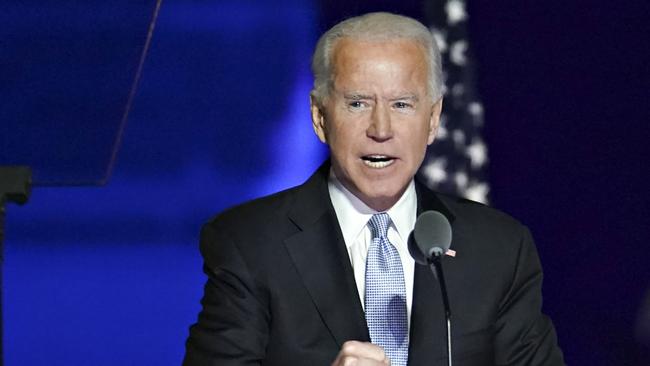
- What Biden will mean for Australia
- Asia trade deal step to reform: BHP
- We can work with China: Frydenberg
Welcome to The Australian’s coverage of The Strategic Forum. 2020 has been a year like no other. The devastating coronavirus, a highly charged US election and a rapidly escalating and economically damaging trade war with China have created great challenges for Australia, as we are experiencing our first recession in almost three decades.
Former Australian Ambassador to the US Joe Hockey says Australia can expect more calm from Joe Biden’s presidency, but Donald Trump will be a “force of nature’’ in the years to come.
The forum has concluded for today. Be sure to join us again tomorrow for more insights.
Subscribers to The Australian can watch The Strategic Forum live. Click here and enter the access code SF_2020!
Adeshola Ore 11.57am: Support for Biden clear in swing states suburbs
The Australian’s Washington Correspondent Cameron Stewart said the recent US election was marked by intense passion from voters on both sides.
“That was shown by the record turnout, but it was absolutely evident out there on the campaign trail,” he told The Australian’s Editor Michelle Gunn.
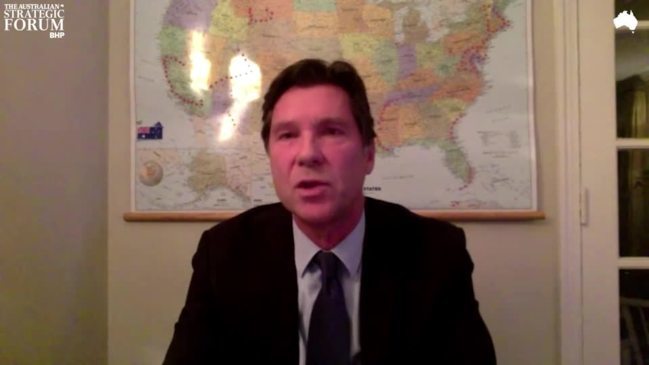
But he said despite the Trump support not being conveyed by city-based media outlets, the support for Joe Biden was clear in the suburbs of swing states.
“The reason why I eventually thought Biden would win was I did trips through the suburbs of cities like Cleveland. I met women who voted for Trump in 2016 but decided not to vote for him again because of his handling of the pandemic.”
Stewart said it was unlikely Mr Biden would be able to heal a divided nation during his term.
“Can he help bridge the divide? To some degree. I think he will be better at doing that than Donald Trump,’ he said.
“Donald Trump didn’t create the divisions, he was part of the whole situation of divided America, that is why he was elected.”
Stewart said pressure is building on Mr Trump to assist Mr Biden’s transition to the White House, despite pursuing legal challenges against the election result.
“I don’t think the president will ever concede he lost the election in a fair way,” he said.
“He’ll be stopped by the fact that states need to start certifying election results in a week’s time.”
He said he doubted that Mr Trump had the disciplined character to run for the presidency in 2024.
“I’m not sure he’d have the discipline and patience to keep doing the right thing to make him electable,” he said.
“He’ll also have a lot of objection from his Republican Party.”
Stewart said Democrats and Republicans were” equally antagonistic” towards China.
“China just hasn’t got friends in Washington at the moment,” he said.
“Joe Biden has said he’ll be very tough on China. He’ll be as tough on China as Trump, if not tougher.”
But he said President-elect Biden had been “surprisingly sparse” regarding how he will deal with the US’ relationship with China.
“He hasn’t been clear of whether he’ll keep the tariffs going, he’s been critical of them but hasn’t said he’ll necessarily end them.”
“I don’t think Biden will take a backwards step. The Obama administration took a much more laissez-faire inclusive approach to China, but America has turned on that front and there’s no going back in this point in time.”
He said Joe Biden would likely look to US allies like Australia to reinforce its tough stance on China.
Adeshola Ore 11.23am: Working from home raises cyber attack risk
Cyber Institute chief executive Lesley Seebeck said working from home has presented increased opportunities for cyber attacks.
“We’re not prepared for that. All of our organisations have been set up on the basis that you go into the office and work in a secured environment,” she said.
Australian Strategic Policy Institute senior analyst Tom Uren warned against complacency in the cyber security landscape.
“It takes people a long time to catch up to what the risks are and dedicare the right amount of resources,” he said.
Western Sydney University Professor of Cybersecurity and Behaviour Alana Maurushat said SMEs were routinely left out of cyber security education.
She said small businesses were the “weakest link” in supply chains into larger companies.
Ms Maurushat said large companies should take a lead in innovating cyber security training for small businesses.
“There needs to be some sort of incentive for that to occur on a wide scale basis,” she said.
Ms Seebeck added it was key to build community in the cyber security landscape.
“We need to train people with a broad sense of skills... At a board level, we need to make sure that people know what questions to ask.”
“We still see people think of technology on the sideline.”
Adeshola Ore 11.11am: Cybersecurity threats: what needs to change
The final panel of the day is titled The changing nature of cybersecurity threats; are Australian governments and businesses adequately addressing the issue; what needs to change?

Hosted by The Australian’s Technology Editor David Swan, it will feature:
Lesley Seebeck, Chief Executive Officer, Cyber Institute, Australian National University,
Tom Uren, Senior Analyst, Internet Economy and Strategy, Australian Strategic Policy Institute
Alana Maurushat, Professor of Cybersecurity and Behaviour, Western Sydney University
Adeshola Ore 10.52am: India, Indonesia ‘good opportunities’ for trade
Reserve Bank of Australia governor Philip Lowe said Australia must focus on broadening its trade markets.
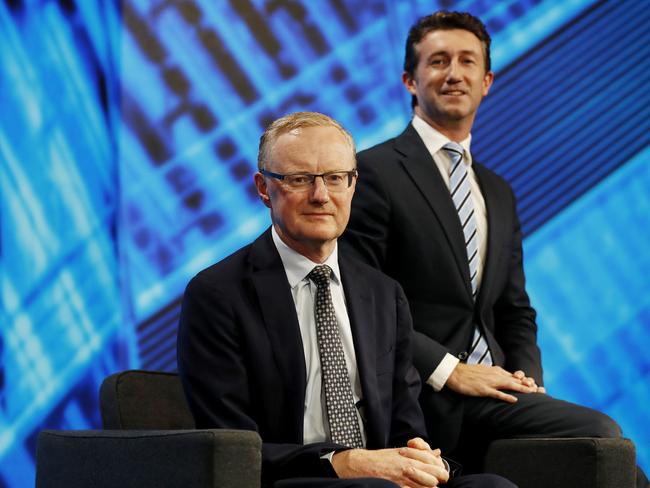
“It’s not a question of diversifying away from China.. it’s incredibly mutually advantageous for both countries to keep that relationship,” he said.
“We have good relationships with India and Indonesia with incredible oppurtunity for growth over the next two decades.”
Capital Group International Vice Chairman Michael Thawley said it is in the economic interests of both China and Australia for the relationship to be maintained.
“Australia has been very good historically at diversifying its exports,” he said.
Mr Thawley said a Biden presidency is unlikely to result in a resurgence of trade relations.
“Protectionist impulses are strong in quite a few of the major economies. We can see that in a number of comments by the impending Biden presidency,” he said.
“It’s a reality we have to face that people will look to build their national resilience, meaning paying attention to supply chains of national importance.”
Turning to a domestic outlook, Dr Lowe said the digitisation of the economy will help drive higher living standards in Australia.
“We will overtime see a dividend in that. We have over the time of the pandemic seen an increased spending on infrastructure which is welcome,” he said.
Dr Lowe said borrowing against future income is the correct solution during a pandemic.
“The cost of doing that at the moment is very low. Global interests rates are historically low and will stay that way for some time,” he said.
But he said structural reforms are critical to increase Australia’s future income and repay debt.
READ MORE: Housing risk has passed, says CBA’s Comyn
Adeshola Ore 10.50am: Australia’s path to post-Covid recovery
The next panel is titled Australia’s economic recovery post-Covid
Hosted by The Australian’s Economics Editor Adam Creighton, it will feature:
Philip Lowe, Governor Reserve Bank of Australia,
Michael Thawley AO, Vice Chairman, Capital Group International and Vice Chairman, Capital International Fund
Adeshola Ore 10.42am: Biden will ‘work to bring China to order’
Australian Ambassador to the US Arthur Sinodinos said a Biden presidency would bring more continuity to Australia.

“In areas like security and defence, the relationship is built on strong values,” he said.
He said Australia would encourage a Biden administration to work closely to bring China towards a “rule based order.”
US tariffs on China were unlikely to change, but noted the Biden presidency had flagged it wanted to find areas of cooperation on climate change and the pandemic, he said in conversation with The Australian’s Washington Correspondent Cameron Stewart.
“One of the ways a Biden administration would confront these issues would be rejoining the Paris agreement and the WTO to give leadership on these issues,” he said.
Mr Sinodinos said fiscal stimulus had been beneficial for the US economy.
“Saving rates here are quite high and as people become confident about spending that will create a whoosh.”
He said the recent positive news about the vaccine would be likely to accelerate the US economy’s recovery.
“As areas open up, the economy is recovering relatively well.”
READ MORE: Tough China stance to stay under Biden, Sinodinos says
Adeshola Ore 10.10am: What Biden’s presidency will mean for Australia
Former Australian Ambassador to the US Joe Hockey says Australia can expect more calm from Joe Biden’s presidency, but Donald Trump will be a “force of nature’’ in the years to come.
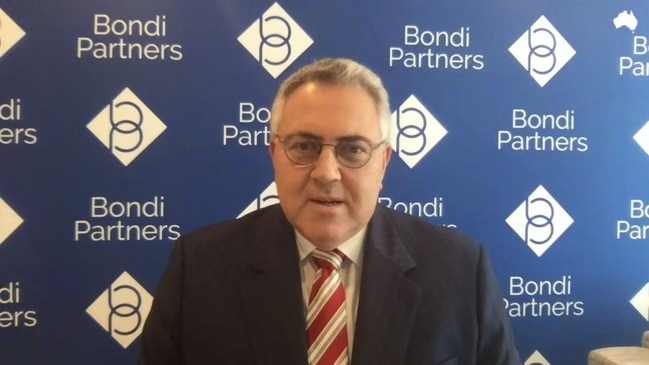
“He (Trump) will be the Australian equivalent of the leader of the opposition up until the mid-terms.” Mr Hockey said in conversation with The Australian’s Editor-at-Large Paul Kelly.
He said the challenge for Joe Biden will be trying to deliver the objectives for progressive Democrats who “feel President Biden owes them a debt.”
“But the key feature of the next few months will be some degree of calmness and consistency from the Oval Office.”
Mr Hockey said under President Biden the US is likely to return to multilateralism, strengthening the World Trade Organisation and rejoining the Paris agreement.
But he said the US would be unlikely to rejoin the Trade Pacific Partnership, which Donald Trump withdrew the country from in 2017.
In relation to China, Mr Hockey predicted a deterioration in relations because of the pressure to prosecute human rights.
“That is an area Donald Trump chose not to go to and it’s an area the Chinese are very anxious about,” he said.
He noted that Joe Biden would not be able to win back more blue collar workers by “becoming friends with China.”
Mr Hockey said Biden’s focus on climate will be key for the US midterm elections.
“He has to navigate that carefully. The only stumble in the election campaign for Biden was the issue of fossil fuels arising out of the second debate and he had to work hard to claw back the impact of that in a number of states,” he said.
He said the theme of climate change will be an area of common interest between the US and China.
“There are a number of swirling factors that will determine whether he can deliver given he’s unlikely to have control of the senate.”
Adeshola Ore 10.00am: Door open for US to rejoin TPP
Trade Minister Simon Birmingham said it was unlikely US trade relations would undergo a major pivot during early days of Biden’s presidency.
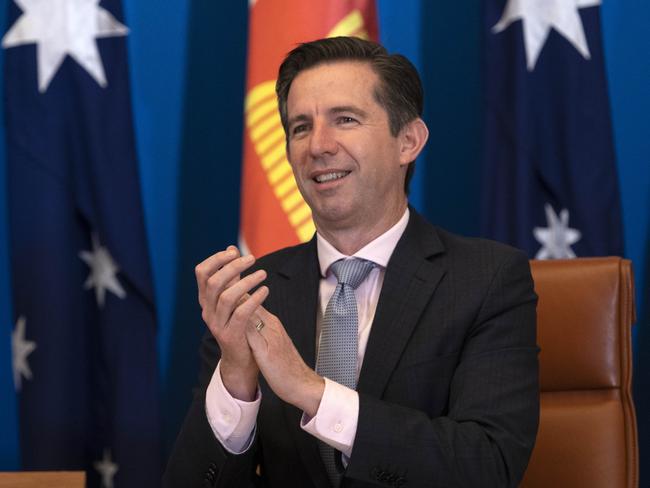
But he said the door “remains open” for the US to rejoin the Trans-Pacific Partnership, after Trump withdrew the country from the agreement in 2017.
“It’s a live agreement and it can bring new parties to the table at any time,” he said.
“And we will make the case that it is of benefit in terms of the calibre of the TPP’s agreement that it is world leading.”
US Studies Centre chief executive Simon Jackman agreed the environment of COVID made it unlikely the US would quickly revert to a liberal trade environment.
“A big unknown is the amazing power Donald Trump continues to hold over his party,” he said.
Senator Birmingham said Australia’s historic defence agreement with Japan was the work of successive governments.
“It is an aspiration that has been in place for a number of years preceding a number of things and dating back to when we were signing FTAs with China,” he said.
“It shouldn’t be viewed in a way that creates ruptures with other nations. It ought to be seen as business as usual for Australia.”
He said that Australia’s approach with China, including tension over human rights issues, had been consistent for many years.
“We’ve been able to work beyond those points of tension to strengthen trade ties,” he said.
Adeshola Ore 9.47am: Panel discusses US-China relationship
The first panel of the day is titled Trade, navigating the US-China relationship
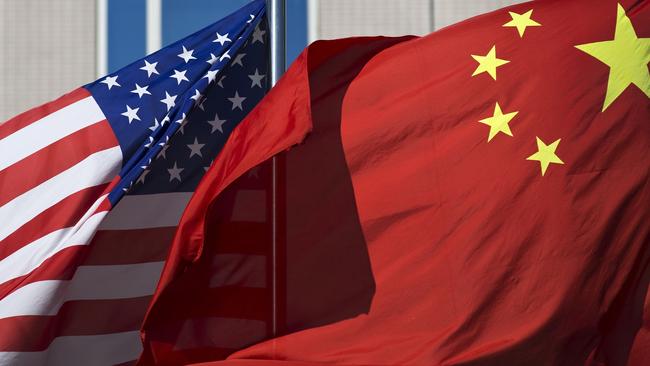
Hosted by The Australian’s Foreign Affairs and Defence Correspondent Ben Packham, it will feature:
Senator The Hon Simon Birmingham, Minister for Finance, Minister for Trade, Tourism and Investment
Simon Jackman, Chief Executive Officer, US Studies Centre
Adeshola Ore 9.41am: Advantage ‘could be leveraged in food, beverage, medical sector’
Treasurer Josh Frydenberg said decoupling from trading partners would hinder Australia’s economic development.
“The way to build resilience is to build new international partnerships and find new markets,” he said.
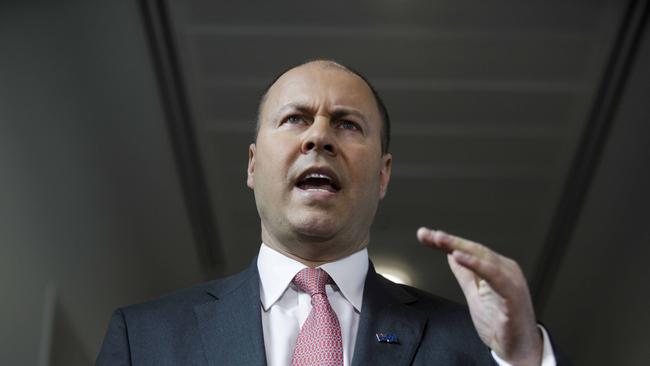
He noted that Australia’s competitive advantage could be leveraged in the food and beverages and medical sector.
He said the latest free trade agreement showed Australia is positioned to harness the benefits of the Indo-Pacific region’s economic growth.
“It signifies our region remains committed to the values of free trade.”
READ MORE: Sheridan — Historic defence deal .. and a climate boogie dance
Adeshola Ore 9.25am: Virus surge in Europe a timely reminder: Treasurer
Treasurer Josh Frydenberg says Australia’s combined fiscal, monetary and health policy responses had contained the impact of the coronavirus pandemic.
“Our success rests on our ability to control the virus but our path out of this will not be smooth,” he said during the Strategic Forum’s second keynote address.
Mr Frydenberg said the resurgence of the virus in Europe was a “timely reminder we are not yet through this virus.”

He said high debt levels around the globe are managed, but not resolved, with record low interest rates highlighting that monetary policy now has limited scope.
READ MORE: We can work with Beijing, says Frydenberg
Adeshola Ore 9.18am: Decisive virus policy made ‘world of difference’
BHP chief executive Mike Henry said Australia’s decisive government policy made a “world of difference” in containing coronavirus.
“Australia is showing some positive green shoots as we transition to recovery,” he said.
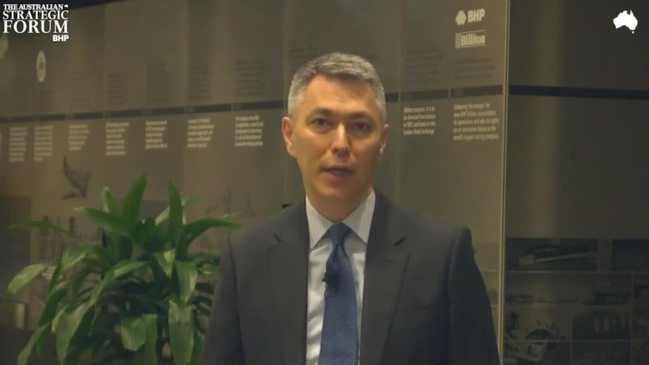
“We are an export dependent trading nation and overall these have remained resilient.”
But he said China’s demand for our resources will likely plateau.
Mr Henry said Australia’s recent signing of the major regional trade agreement is encouraging for reinvigorating relationships and forging closer ties.
He said Australia’s strength lies in being able to access other parts of the world.
“The benefits of this multiply at home through employment, economic development and social progress,” he said.
“I firmly believe it is in Australia’s national interest to work with our partners as we have done in the past.”
Adeshola Ore 8.54am: BHP chief Mike Henry to deliver keynote address
Day one of The Australian’s Strategic Forum will begin shortly.
BHP chief executive Mike Henry will deliver the keynote address this morning.
Staff writers 8.30am: Strategic Forum agenda of speakers
Mobile readers can find the Strategic Forum program here
Patrick Commins 7.40am: Japan trade deal step to reform: BHP
BHP chief executive Mike Henry says Australia must use the signing of a major regional trade agreement as a springboard for national leaders to meet face-to-face, saying it is in the national interest to “work with our partners”.
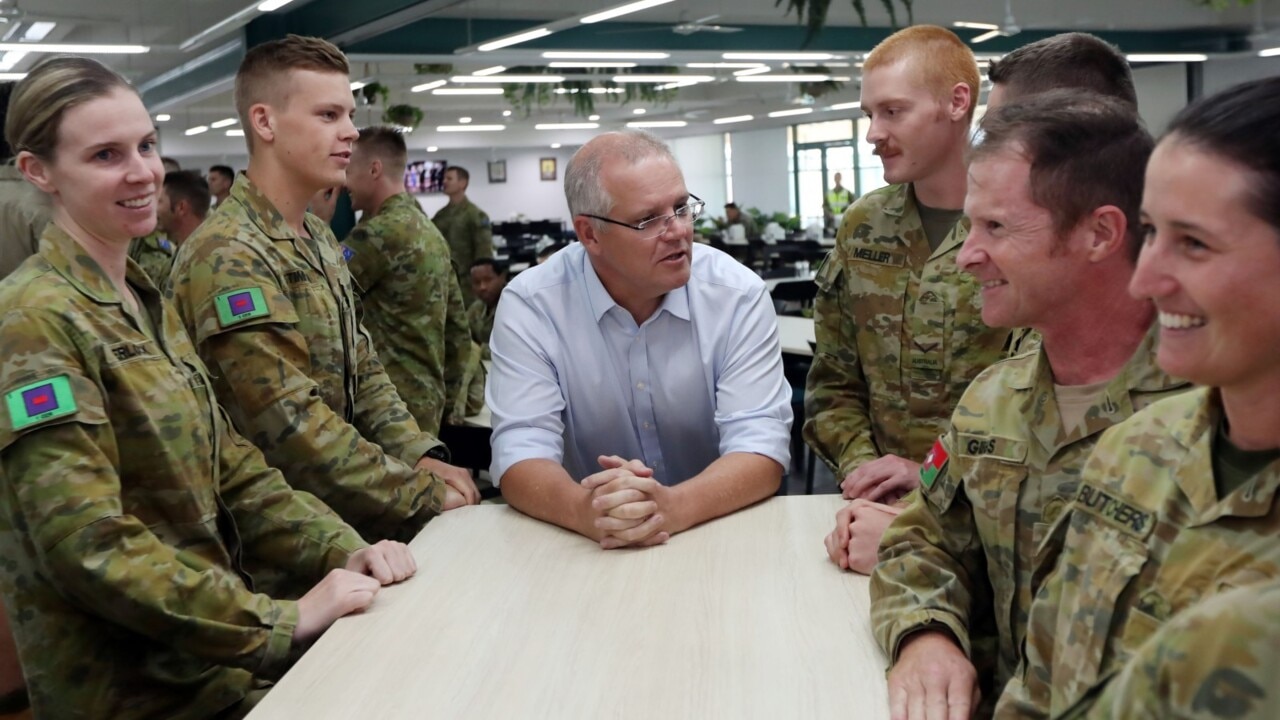
In a keynote speech opening The Australian’s Strategic Forum on Wednesday morning, Mr Henry will say our country has done well through the global health crisis that has killed more than 1.2 million people and cost the world economy $US5.5 trillion, but that Australia needs to face some “pretty tough realities”.
READ the full story here
Paul Kelly 7.30am: How to manage China remains PM’s pivotal issue
Australia is deepening its status as Japan’s most important strategic partner behind the US with the conspicuous symbolism that surrounds Scott Morrison’s visit to Tokyo —– the first foreign leader to meet new prime minister Yoshihide Suga on home soil.
The Morrison-Suga meeting comes with the near finalisation of the six-year long negotiation of the Reciprocal Access Agreement, with Morrison telling this column it means “our defence forces can operate in and around Japan and Japanese self-defence forces can operate in and around Australia”.
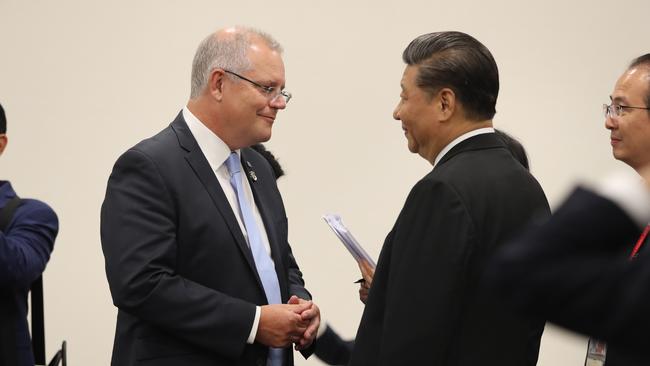
This new agreement is driven by Australia-Japan strategic concord, a story stretching back several decades with a strong Liberal Party alignment. A six-year negotiation means it was not triggered by Beijing’s assertiveness under President Xi Jinping, but the agreement’s significance cannot be grasped outside the context of China’s muscle-flexing.
READ Paul Kelly’s full commentary here
Simon Benson 7.10am: We can work with Beijing: Frydenberg
Josh Frydenberg has offered a critical circuit breaker to ease tensions with China, claiming the Morrison government is ready to re-engage in “respectful and beneficial” dialogue with Beijing amid escalating trade pressure but warning Australia’s national interest is non-negotiable and will never be compromised.
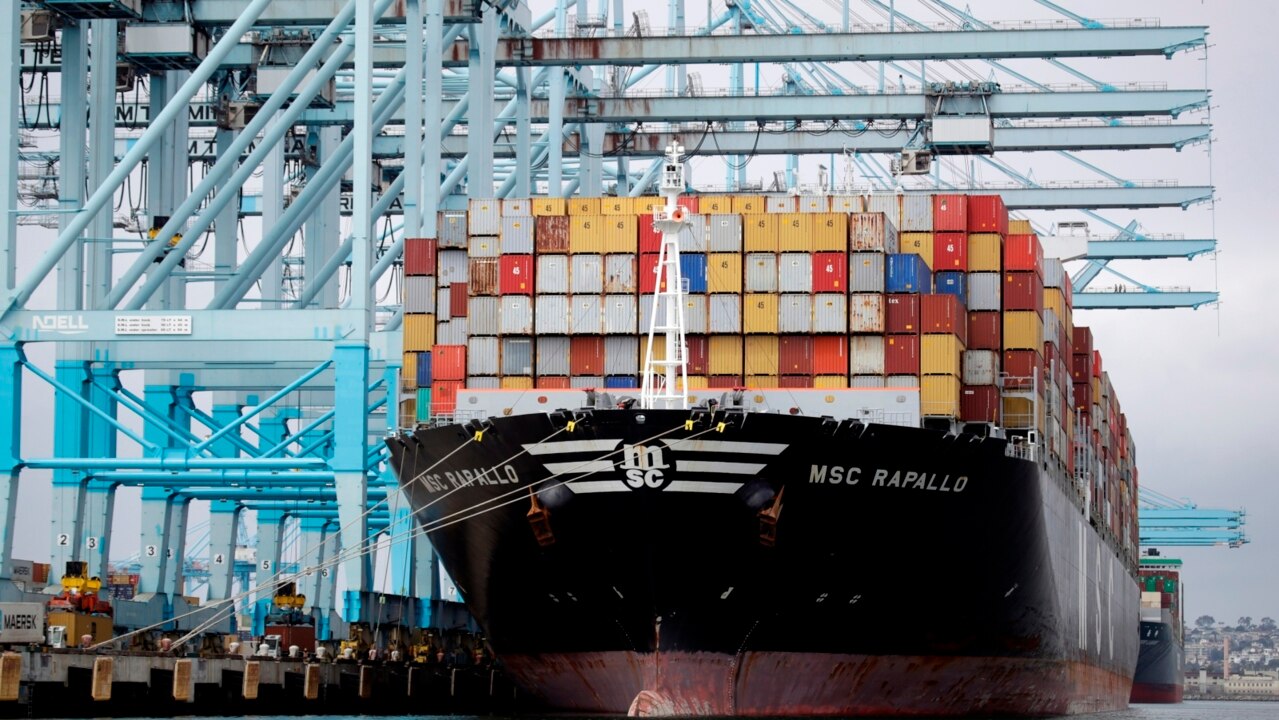
In the first diplomatic intervention by the Treasurer, designed to reassure nervous business leaders that Canberra was open to rebuilding relations with Chinese leadership, Mr Frydenberg said Australia was committed to restoring a working relationship with the communist superpower.
Mr Frydenberg’s comments, to be delivered on Wednesday to The Australian’s two-day Strategic Forum, follow Scott Morrison’s visit to Japan and come as concerns intensify over China’s ongoing retaliatory trade action against Australian exporters, leading to calls for the relationship to be put “back on track”.
READ the full story here



To join the conversation, please log in. Don't have an account? Register
Join the conversation, you are commenting as Logout